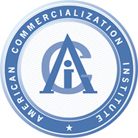 |
High Paying
US Jobs, Economic
Empowerment
&
Revitalization
of
States through Federal Power |
"Critical Field"
Technology Innovation
&
Maximized Profits on
R&D and Investments |
Prevention of Biochemical
and Nuclear Proliferation
&
Homeland Security
Technologies |
Underwater Glues
POLYMERight has developed and marketed a family of proprietary
"Underwater Glue" epoxy-based adhesives which includes several
formulations with different set times (from 5 minutes to 2 hours). These
controllable set time products, manufactured according to a recently issued
patent, are designed to satisfy the requirements of a wide variety of personal
use and industrial applications. These materials offer several very important
advantages over more conventional adhesives, as follows:
First, POLYMERight's Underwater Glue can be applied underwater or on wet
substrates without any significant change of bonding strength. Most epoxy
adhesives cannot effectively bond underwater and, in fact, require thoroughly
dried surfaces before application of the adhesive to achieve usable adhesion.
The ability to work well under wet conditions can be of substantial advantage in
such applications as plumbing, irrigation systems, sprinkler systems, marine
installations, construction, maintenance, etc.
The Underwater Glue is effective on most frequently used materials except for
very low energy surfaces such as Teflon, silicone, polypropylene and
polyethylene.
Second, these products bond very strongly to PVC. This is very unusual in
several respects. PVC bonding is currently done in one of two ways, either with
cyanoacrylate adhesives (Crazy GlueŽ, Super GlueŽ, etc.) or with PVC cements.
However, cyanoacrylate adhesives are very difficult to work with in the field,
they usually do not allow sufficient working time to properly fit the parts to
be bonded to one another, they require a dry surface, provide low peel strength
and have a tendency to bind fingers and gloves. PVC cements not only contain
hazardous, volatile, flammable and very malodorous solvents that must be
evaporated, but they can only be used to bond tight fitting PVC surfaces that do
not have any appreciable gaps between them. They cannot be used to bond wet PVC
surfaces together or to glue PVC to other substrates.
POLYMERight Underwater Glue is entirely VOC free, will bond PVC (even under
water) to PVC, to many other plastics, ceramics, concrete, metals, brick, glass,
etc., as well as bind all of those materials together. Underwater Glue may be
used both for close fitting joints and for filling gaps between the details that
are being bonded, acting as a sealant. It forms gap-filling seals that are
tough, bendable, and extensible, exhibiting none of the brittleness of more
typical epoxy adhesives. Applications for these Underwater Glue products include
joints for PVC piping, tank linings and coatings, swimming pools, concrete
cracks and joints, etc. The flexibility and strength of joints made with
Underwater Glue make it very suitable even for repairs to inflatable boats, life
jackets, balloons and similar goods made from Hypalon, PVC or polyurethane.
The mechanical properties of cured formulations, their chemical resistance
and typical bond strengths with a variety of materials are shown in the Tables
that follow.
Third, POLYMERight Underwater Glue remains flexible after curing. Typically,
bonds made with conventional epoxy adhesives are known to be brittle, with
normal elongation of only 3-5%. Bonds made with such epoxies may fail as the
joined materials shrink and expand with temperature variations (especially with
dissimilar materials such as metal bonded to glass). Earlier attempts to create
more flexible and tough epoxy adhesives typically have led to reduction of the
strength of the bond, and the elongation improvement initially observed is
gradually lost as the joint ages.
In contrast, cured POLYMERight Underwater Glue formulations exhibit
elongation of 28-32%. Joints made with it remain tough and flexible long term
and even at temperatures as low as -20°F. This high flexibility of the adhesive
causes the bond joint to act as a damper for impact and vibration and it will
tolerate significant bending and shock forces. Many cold weather, high vibration
or impact applications are uniquely enabled by these properties.
Convenient retail packages of POLYMERight's UG have been on sale for several
years in the US through retail chains for hardware, marine supplies, home and
swimming pool repair, automotive parts shops, etc. Distribution and sales are
growing and the product was recognized as the outstanding new product at the US
National Hardware Show in 2002. Industrial applications in automotive, piping,
construction and maintenance operations have been initiated and these and other
industrial uses are also expected to grow rapidly.
The majority of POLYMERight's Underwater Glue formulations have the following
characteristics, although different combinations of properties can be designed
for specialized end uses.:
Mix Ratio
By Volume (Resin:Hardener) 1:1 By Weight (Resin:Hardener) 4:3
Typical Properties of Cured Formulation
Flexural Modulus 80,000 - 84,000 psi Tensile Modulus 74,000 - 78,000 psi
Tensile Strength 1,800 - 2,200 psi Elongation 28-32%
Chemical resistance (90 Days Weight Gain)
5% Sulfuric Acid 5% 5% Caustic 1% Tap Water 2%
Bonding Strength, Shear
Hard PVC 1,800 psi ABS 600 psi Carbon steel 3,000 psi
T-Peel Strength of Bonded Flexible PVC
Water washed surface 35.8 LB/in Abraded surface 38.7 LB/in
180° Flexible PVC Peel Strength from Different Substrates
Hard PVC 32.7 LB/in ABS 15.5 LB/in Polyester 29.4 LB/in Dry cement brick 40.0
LB/in Wet cement brick 33.9 LB/in Dry red brick 41.3 LB/in Wet red brick 45.8
LB/in
POLYMERight's patented line of adjustable cure time underwater glue products
offers a unique and highly diversified series of retail and industrial market
opportunities. To learn more about these products, and their unique capabilities
and applications, please contact us at POLYMERight, Inc. by phone, fax or
e-mail.
